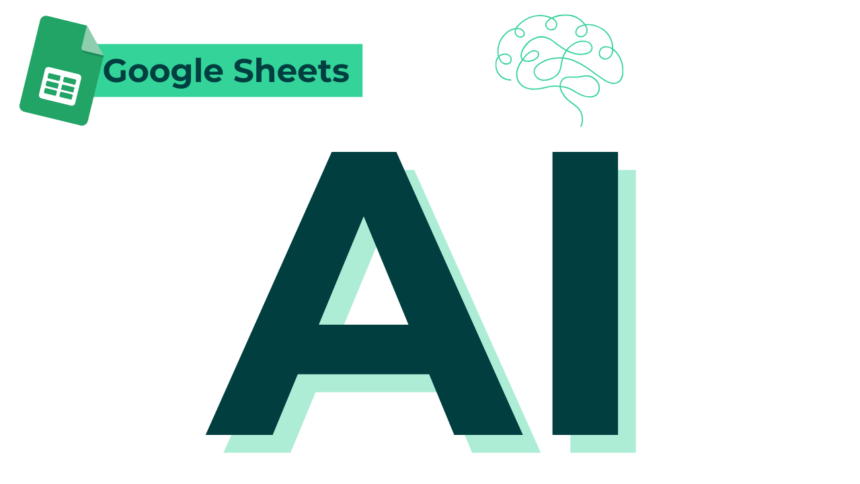Building an AI Model with Google Sheets for Nigerian SMEs
In the competitive landscape of Nigerian small and medium-sized enterprises (SMEs), efficiently managing sales leads can make the difference between thriving and merely surviving. With limited resources, Nigerian SMEs often struggle to prioritize prospects amid economic challenges like inflation, supply chain disruptions, and fluctuating naira values. Enter predictive lead scoring—an innovative approach that leverages artificial intelligence (AI) to forecast which leads are most likely to convert into paying customers.
- Building an AI Model with Google Sheets for Nigerian SMEs
- Understanding Predictive Lead Scoring
- Benefits for Nigerian SMEs
- Prerequisites for Building the Model
- Step-by-Step Guide to Building the AI Model
- Related article: Top 10 Apps to Streamline Your Daily Workflow
This article explores how Nigerian SMEs can build a simple yet effective AI-powered predictive lead scoring model using Google Sheets, a free and accessible tool. By democratizing AI, this method empowers businesses in sectors like retail, agriculture, and services to optimize their sales funnels without investing in expensive software. From data collection to model deployment, we’ll guide you through the process step by step, ensuring it’s tailored to the Nigerian context where internet access might be intermittent and budgets tight. By the end, you’ll have a practical framework to boost conversion rates and drive growth.
Understanding Predictive Lead Scoring
Predictive lead scoring is a data-driven technique that assigns scores to potential customers based on their likelihood of making a purchase. Unlike traditional lead scoring, which relies on manual rules (e.g., adding points for job title or company size), predictive models use AI algorithms to analyze historical data and identify patterns.
At its core, the system processes variables such as demographics, engagement history, and behavioral signals. For instance, a lead who frequently visits your website and downloads resources might score higher than one who only subscribes to a newsletter. AI enhances this by employing machine learning to refine predictions over time, adapting to new data without constant human intervention.
For Nigerian SMEs, this is particularly relevant. Consider a Lagos-based e-commerce store selling fashion items: Predictive scoring could prioritize leads from high-engagement regions like Abuja over sporadic inquiries from rural areas, factoring in local economic indicators like mobile money usage trends.
Benefits for Nigerian SMEs
Adopting predictive lead scoring offers tangible advantages for Nigerian businesses operating in a resource-constrained environment:
- Cost Efficiency: Google Sheets eliminates the need for premium CRM tools like Salesforce, which can cost thousands of naira monthly. SMEs can start with zero additional expense.
- Improved Sales Productivity: Sales teams, often small in Nigerian SMEs, can focus on high-potential leads, reducing time wasted on unqualified prospects. This is crucial in markets with high competition from informal sectors.
- Data-Driven Decisions: In Nigeria’s diverse economy, where consumer behavior varies by region (e.g., tech-savvy youth in urban centers vs. traditional buyers in the north), AI helps uncover hidden insights, such as the impact of festive seasons on purchasing.
- Scalability: As your business grows—from a single-shop operation in Kano to a multi-branch setup— the model can handle increasing data volumes without proportional cost increases.
- Competitive Edge: With Nigeria’s digital economy booming (projected to reach $88 billion by 2025), early adopters of AI tools like this can outpace rivals still relying on gut instincts.
Real-world examples include Nigerian fintech startups using similar models to score loan applicants, demonstrating how predictive analytics can mitigate risks in volatile markets.
Prerequisites for Building the Model
Before diving in, ensure you have the basics:
- A free Google account to access Google Sheets.
- Basic familiarity with spreadsheets (e.g., formulas like SUM or AVERAGE).
- Historical lead data: At least 100-500 records from your CRM, email lists, or sales logs, including columns like lead source, engagement level, and conversion outcome
- Optional: A Google Workspace account for advanced scripting, though not mandatory for starters.
No coding expertise is required initially, but we’ll touch on simple Google Apps Script for AI integration. Ensure your data complies with Nigeria’s Data Protection Regulation (NDPR) to protect customer privacy.
Step-by-Step Guide to Building the AI Model
Step 1: Data Collection and Preparation
Start by creating a new Google Sheet named “Lead Scoring Model.” Import or manually enter your lead data into columns. Essential fields include:
- Lead ID (unique identifier)
- Name/Email
- Source (e.g., social media, referral)
- Engagement Metrics (e.g., website visits, email opens)
- Demographic Data (e.g., location in Nigeria, age group)
- Conversion Status (1 for converted, 0 for not)
For Nigerian SMEs, incorporate local variables like “Payment Method Preference” (e.g., mobile money vs. bank transfer) or “Region” (e.g., South-West for higher urban conversion rates).
Clean the data: Use Google Sheets’ built-in tools like “Data > Remove duplicates” and formulas such as =IF(ISBLANK(A2), “Unknown”, A2) to handle missing values. This step ensures accuracy, as AI models thrive on clean inputs.
Step 2: Feature Engineering
Identify key features that influence conversions. For example:
- Calculate an “Engagement Score” with a formula: = (B2 * 0.4) + (C2 * 0.3) + (D2 * 0.3), where B2 is email opens, C2 is visits, and D2 is downloads.
- Use conditional formatting to highlight patterns, like coloring high-engagement rows green.
Incorporate Nigerian-specific features, such as a “Festive Season Flag” (1 if lead acquired during Eid or Christmas, when spending surges).
Step 3: Implementing the AI Algorithm
Google Sheets doesn’t have native machine learning, but we can simulate a basic AI model using logistic regression via formulas or add-ons.
- Simple Formula-Based Model: In a new column “Predicted Score,” use: =1 / (1 + EXP(- (INTERCEPT + SLOPE1 * Feature1 + SLOPE2 * Feature2))), where intercepts and slopes are derived from historical data using the LINEST function.
For more AI power, enable Google Apps Script:
1. Go to Extensions > Apps Script.
2. Write a script to integrate with free AI APIs (e.g., a basic ML endpoint). Sample code:
function predictScore(engagement, location) {
// Simulate AI logic; in practice, call an API
var score = (engagement * 0.5) + (location == “Urban” ? 0.3 : 0.1);
return score > 0.7 ? “High” : “Low”;
}
3. Link it to your sheet: In a cell, use =predictScore(B2, E2).
For advanced users, connect to Google’s Vertex AI via API keys (free tier available), allowing true machine learning without leaving Sheets.
Step 4: Training and Testing the Model
Split your data: Use 70% for training (to calculate coefficients) and 30% for testing.
- Apply the model to the test set and calculate accuracy: =COUNTIF(F2:F100, “>0.5”) / COUNTA(F2:F100) where F is predicted vs. actual.
Refine by iterating—add more data over time to improve predictions, mimicking AI learning.
Step 5: Deployment and Monitoring
Automate scoring: Use Google Forms to feed new leads into the sheet, triggering updates via scripts.
Monitor performance monthly, adjusting for Nigerian market shifts like policy changes affecting consumer confidence.
Integrate with tools like Google Data Studio for visualizations, showing lead distribution across states.
Related article: Top 10 Apps to Streamline Your Daily Workflow
Challenges and Solutions
Nigerian SMEs may face hurdles like unreliable internet. Solution: Work offline in Google Sheets and sync when connected.
Data scarcity? Start small and build gradually.
Ethical considerations: Avoid bias in features (e.g., don’t discriminate based on ethnicity inferred from names).
Conclusion
Predictive lead scoring with Google Sheets democratizes AI for Nigerian SMEs, transforming raw data into actionable insights. By following this guide, businesses can enhance efficiency, cut costs, and gain a foothold in Nigeria’s dynamic economy. As AI evolves, tools like this will become indispensable, enabling even the smallest enterprises to compete globally. Start building your model today—your next big sale might depend on it.







Your blog is a constant source of inspiration for me. Your passion for your subject matter shines through in every post, and it’s clear that you genuinely care about making a positive impact on your readers.